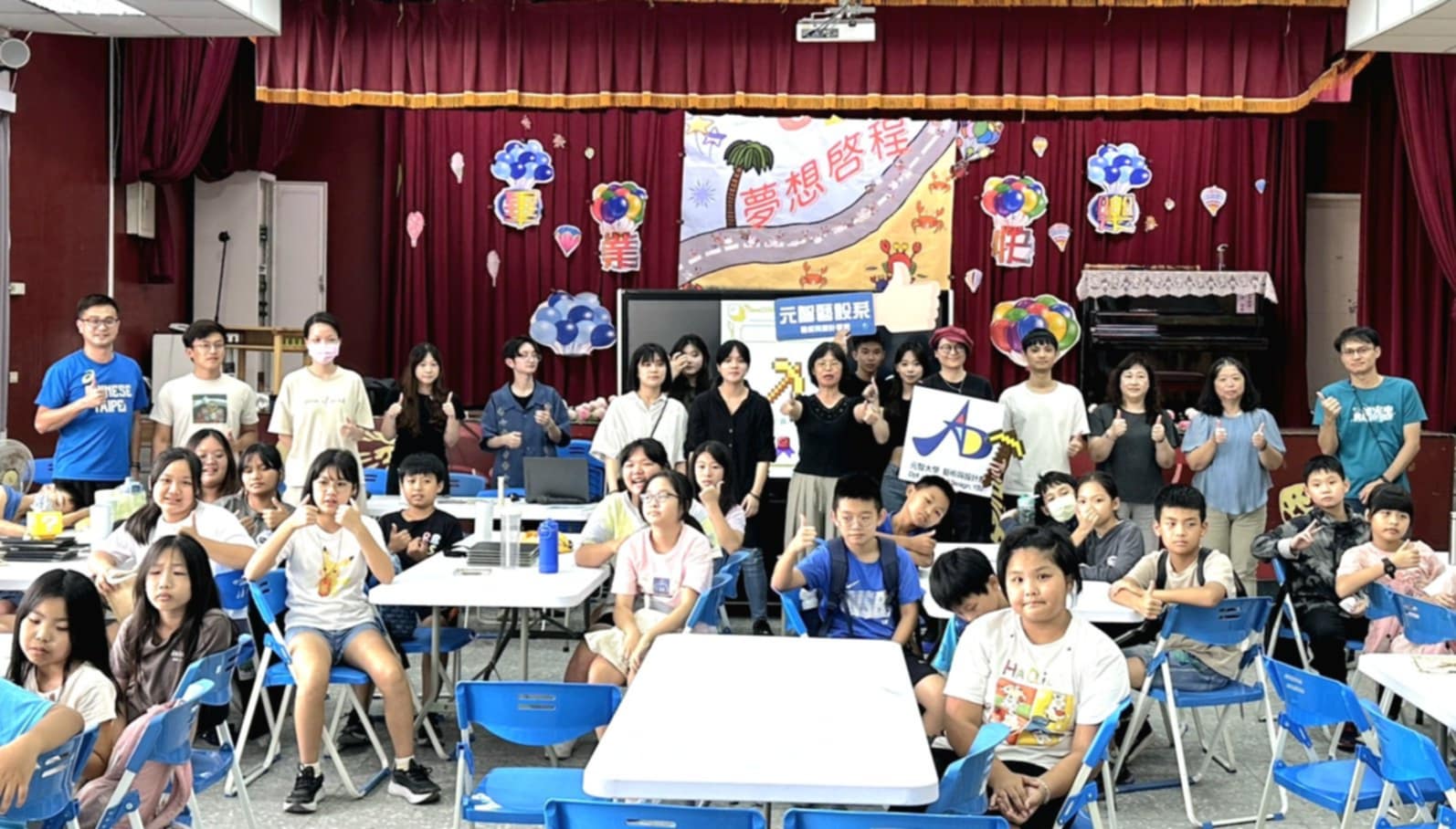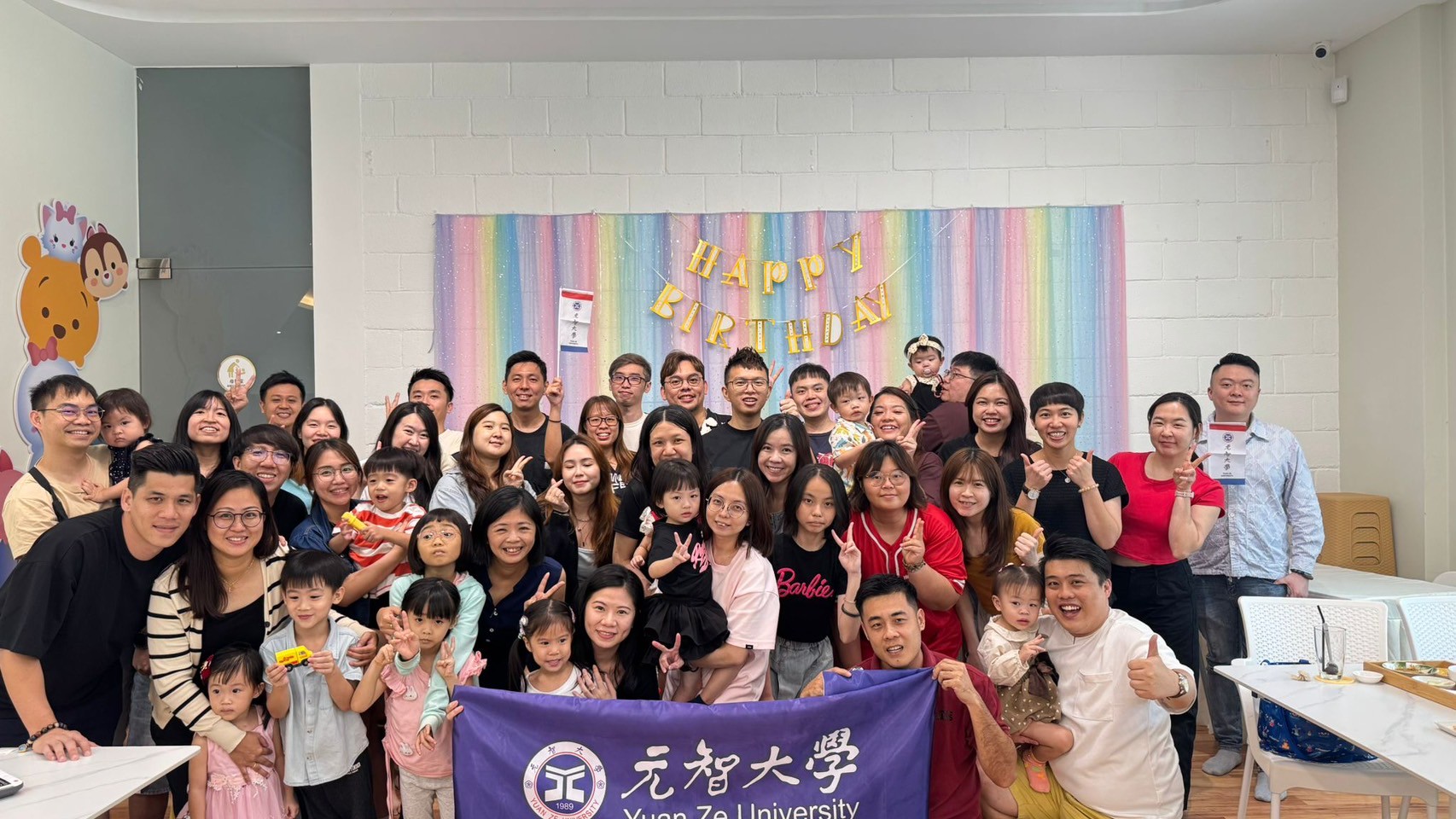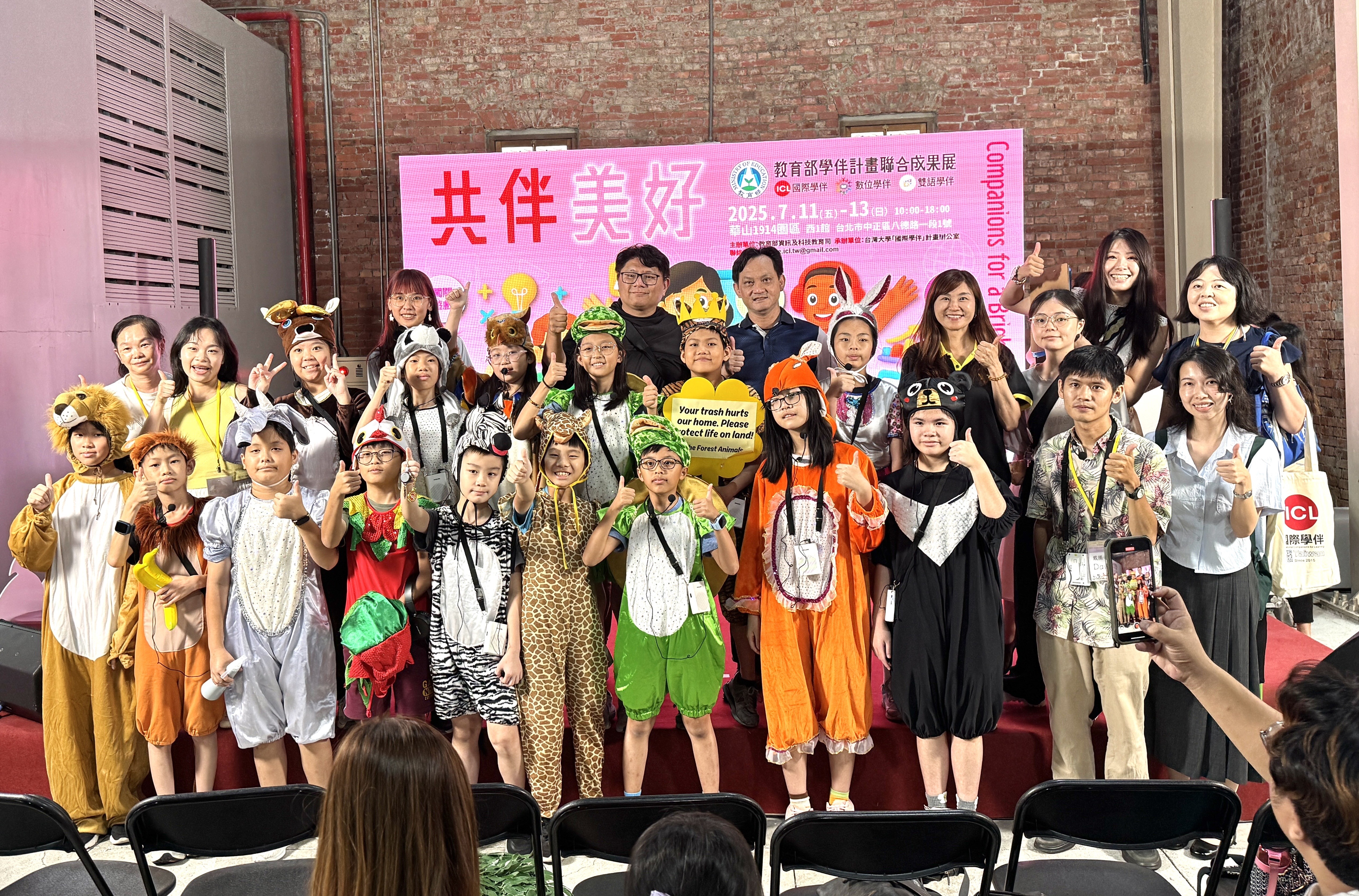Yuan Ze University’s Department of Art and Design partnered with five elementary schools in the Northeast Coast of New Taipei City to launch the “Legend of the Brave AI Camp.”
The program featured an immersive curriculum that blended physical and virtual experiences, culture and gaming, guiding students to learn about their hometown culture through gameplay while developing digital literacy and teamwork skills.
The AI camp was led by Assistant Professor Chia-Hui Lo from the Department of Art and Design at Yuan Ze University, who designed and directed the course. The participating schools—Ruibin, Bitou, Guashan, Liandong, and Jiufen Elementary Schools—worked together to help students transform their campuses into interactive virtual scenes using VR and Minecraft platforms. Local cultural stories and puzzle-based missions were integrated into the program to fulfill the dual educational goals of digital learning and cultural literacy.
The curriculum built upon spatial knowledge introduced in the previous semester’s program at the Gold Museum, placing special emphasis on the concept of “the body as a measuring tool.” Yuan Ze University introduced immersive VR and gamified learning methods, enabling students not only to construct paper models or physical structures with blocks but also to build digital versions of their campuses through computer modeling and platforms like Minecraft. Each team was also tasked with designing a “treasure mission” accompanied by AI-generated clues, inviting students from other schools to participate and explore, thus fostering interschool collaboration and cultural exchange.
Chia-Hui Lo emphasized that the curriculum focused heavily on “integration of physical and virtual experiences.” In physical activities, students were required to observe their campus spaces on-site, document architectural features, and draw sketches by hand. In the digital component, these observations were transformed into interactive 3D or Minecraft scenes with game levels and cultural narratives, allowing peers to learn through immersive challenges. She hoped the children would develop observational skills, spatial awareness, and digital competence through play—while also learning to share their hometown stories, representing a meaningful fusion of cultural heritage and digital education.
Ying-Ying Lee, principal of Ruibin Elementary School, expressed that the innovative curriculum significantly boosted student engagement, inspiring critical thinking, creativity, and communication skills. She stressed that digital learning is a growing educational trend and that helping students seamlessly navigate between the virtual and real worlds while developing diverse expression and digital literacy is a key goal of modern education.
During the camp, students from the five schools not only designed their own “digital campuses” and missions but also explored and challenged those created by other schools. Through these exchanges, they shared their unique architectural features and historical stories. Many students said it was the first time they realized that “architectural spaces” could be transformed into digital game environments to invite friends to interact and solve puzzles together.
In recent years, Yuan Ze University’s Department of Art and Design had actively engaged in local collaborations and digital education research. The “Legend of the Brave AI Camp” was recognized as an innovative model for rural education. Chia-Hui Lo remarked that in the future, the team hoped to further incorporate local cultural and landscape resources—such as the Gold Museum and the National Museum of Marine Science and Technology—to develop a localized “Culture x Technology” curriculum brand for the Northeast Coast. By integrating professional design education with digital technology, Yuan Ze University aimed to continue supporting rural areas in creating diverse and open learning environments, bringing new energy and possibilities to educational innovation in Taiwan.
 English
English  正體中文
正體中文 



